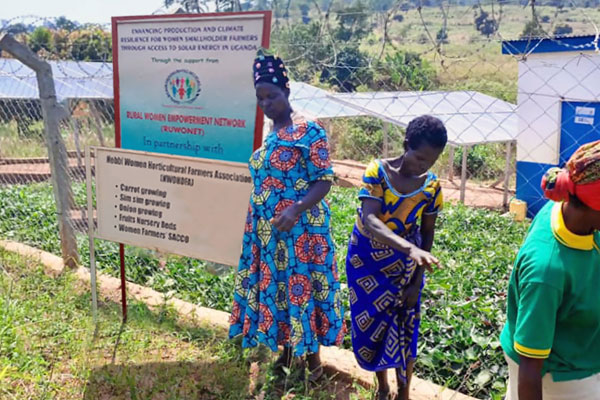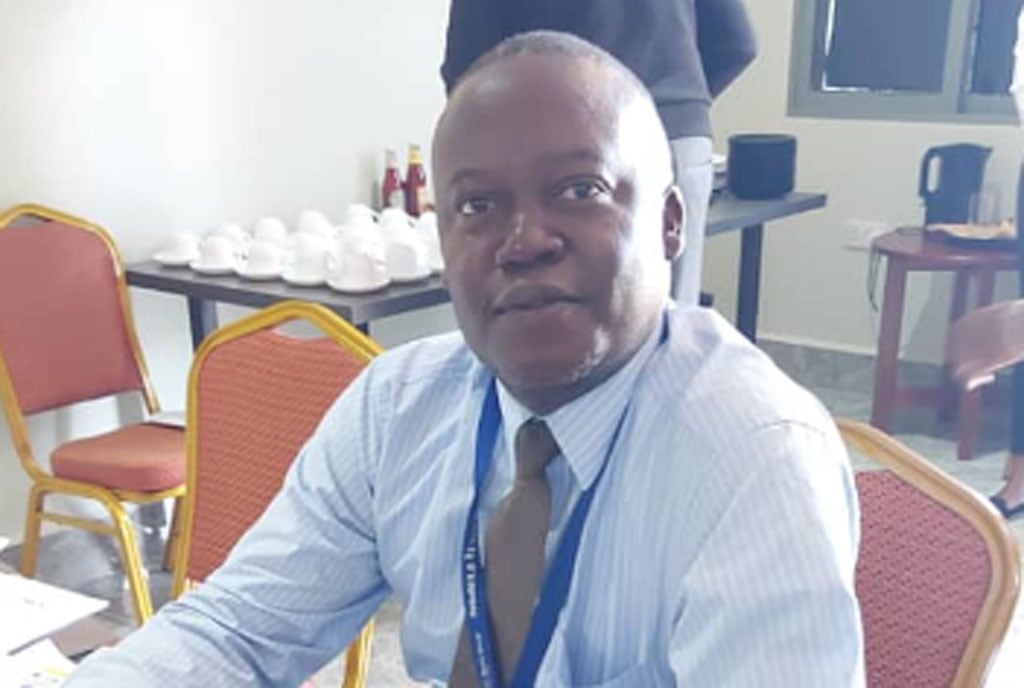Rural women farmers benefit from solar-powered irrigation project

Nebbi Irrigation Site Donated to Women Horticultural Farmers. PHOTOS/ RASHUL ADIDI
What you need to know:
- Ms Judith Kwiocwinyi, the Chairperson of the Nebbi Women Horticultural Farmers Association (NWOHOFA), is optimistic that the solar irrigation and refrigeration technology will enable her to scale up and diversify production.
At least 103 women from three women-led smallholder farming communities from rural Uganda have benefitted from an innovative solar-powered irrigation system to enable them enhance their yields and climate resilience.
The beneficiaries are Kaihura Women Farmers Association (KAWFA) in Butiiti Sub-county, Kyenjojo District, Nebbi Women Horticultural Farmers Association (NWOHOFA) in Ndhew Sub-county, Nebbi District and Women Smallholder Farmers Union (WOSFU) in Nadunget Sub-county in Moroto District.
The irrigation infrastructure has been donated by a Uganda-based charity-Rural Women Empowerment Network (RUWONET), with support from the Honnold Foundation, under the project Enhancing Production and Climate Resilience for Women Smallholder Farmers through Access to Solar Energy in Uganda.
The total project cost is $97,223 (about Shs350m) provided by the Honnold Foundation. Half of this funding (USD48,612, Shs175m) was disbursed to facilitate the first phase of the project.
Benefits
Of the 103 wonen, 12 have been trained as solar energy technicians to endure the systems upkeep, while all the beneficiaries was trained in using solar energy for food security and post-harvest handling.
The project has also installed three solar kits at three representative households of the beneficiary communities to power lighting and refrigerators for dairy and horticultural cooling.
“These communities all together are farming on 27 acres of land, which is commercially viable for coffee, tomatoes and pineapple growing,” says Mr Abas Ruhweza, the Director of Programs at RUWONET.
He says the goal of the project is to capacitate the women farmers to irrigate the entire land year round, which will increase their yields by at least 50 percent, thus their incomes and food security, while also making them more resilient to climate change.
According to Mr Ruhweza, majority of the women practice horticulture, whose yields are perishable and can only be marketed in fresh form due to absence of value addition technology.
Ms Priscilla Murungi, Executive Director, Rural Women Empowerment Network, said increasing women’s access to clean energy catalyses their empowerment by generating socio-economic opportunities, while having a positive climate impact since women form the majority of natural resource users in Uganda.

Eng Kakuru Ephraim of Solar Hub Uganda Demonstrating how the Solar Energy Water Pump Works before Members of the Kaihura Women Farmers Association (KAWFA)
Beneficiaries speak out
Ms Judith Kwiocwinyi, the Chairperson of the Nebbi Women Horticultural Farmers Association (NWOHOFA), is optimistic that the solar irrigation and refrigeration technology will enable her to scale up and diversify production.
“I hope to scale up through having additional greenhouses and producing other vegetables like cucumbers and cabbage.
“I also plan to open a showroom or grocery store and to process my crops and make them more accessible and affordable to the people of my community,” she says.
Ms Sarah Kengonzi, the Chairperson of Kaihura Women Farmers Association (KAWFA), says the solar infrastructure presents a partial solution to the problem of malnutrition in the area.
She said: “I am happy the problem of nutrition will somewhat be solved in my community, because fresh fruits and vegetables will be locally available year-round.”
Ms Lucy Ayerango, a member of Women Smallholder Farmers Union (WOSFU) says many of the farms in northern Uganda do not harvest produce outside the rainy season; this means that vegetables become more expensive as they have to be transported from other parts of the country.
“It also means that there are fewer job opportunities here, and that’s why you see women and girls migrating to Kampala to vend fruits”, she adds.





